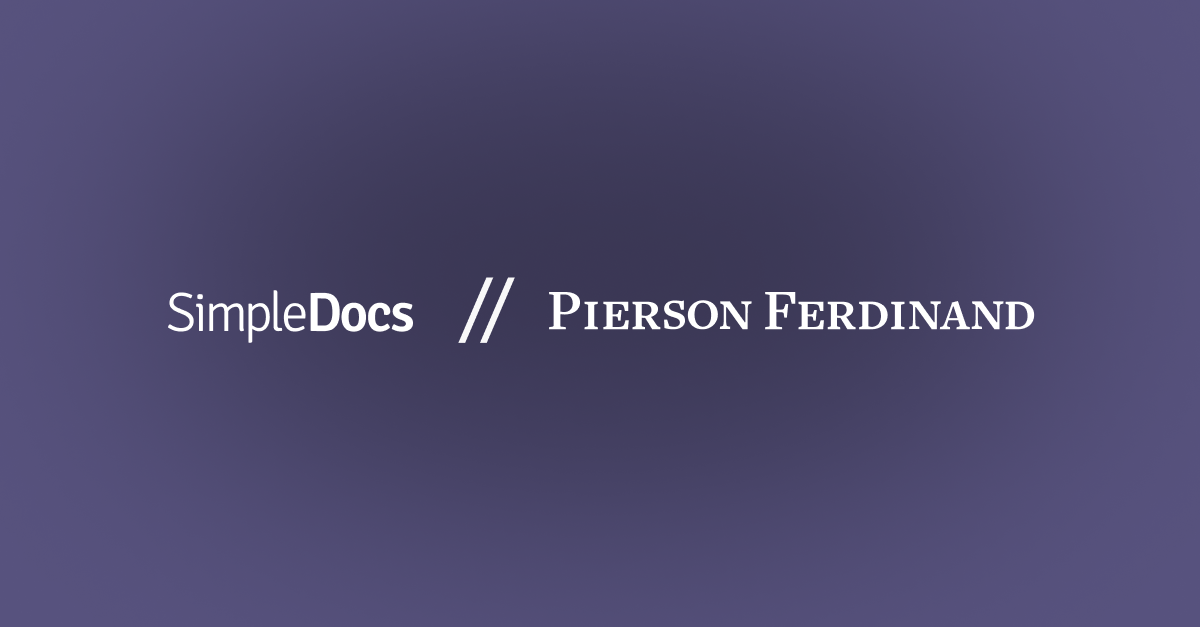Lawyers don’t talk enough about tone of voice. At law school, we’re taught how to pore over densely packed text and decipher the meaning behind the legalese in complex documents. So it’s no wonder that we go into the legal industry thinking that the only way to do law is to write in the most formal style and litter our arguments with Latin legal phrases. After all, that’s how people will take us seriously, right?
Wrong. You don’t have to bore and confuse your reader to be taken seriously.
Let’s be real. Most people signing NDAs, leases, employee contracts (the list goes on) aren’t in the legal sector and don’t understand the terminology. If you were speaking to them in an outdated, formal way at the coffee machine, they’d almost certainly think it’s unnecessary, annoying and downright ridiculous. That’s no different when you’re talking to them in written form.
Writing clearly in plain English will help your reader to understand what you’re telling them. And, if people can understand it, they will spend less time arguing over how it should be worded. This will also enable business people to take the lead on negotiating low-value and low-risk contracts like the humble NDA. If an NDA is written in horrible legalese, you can't expect a sales person to 'own' the NDA process. Instead, by applying plain English and good design principles - e.g. putting all the variables and commonly negotiated terms at the top of a contract - we can empower non-lawyers to take ownership of those low-risk agreements.
But would a judge take my plain English seriously?
Drafting legal documents or advice doesn't mean you have to be alienating. As lawyers, we often think that we need to stick to the traditional legalese to make sure that our documents will stand up in court. In reality, however, it’s not just the layman who wants to read in plain English - judges prefer it too.
There have been multiple experiments over the years which have shown that judges overwhelmingly prefer plain English writing to the old-fashioned legalese. One of the most recent was by US lawyer Sean Flammer in 2010, which found that 66% of judges preferred the plain English version of an argument over the legalese. The judges also believed that the plain English author was more believable, better educated and worked for a prestigious law firm.
Of course, the ideal scenario would be not to get into a dispute in the first place. By writing in plain English, the parties’ obligations and intentions are clear to everyone, meaning that you’re less likely to be arguing about it at all.
Tips to keep your audience engaged
These days, everyone has an inbox full of emails and not enough time to read them. Impenetrable blocks of text filled with confusing jargon will switch off your readers. Here are a few legal writing tips to keep your audience interested in yours:
🌟 Frontload the variable terms in a contract. When creating a contract, put all the variables and most negotiated terms at the top. This empowers the business to lead the negotiations over the commercial issues and discourages detailed negotiations over the main body of the agreement.
🌟 Use summaries, headings and lists. Summarise the key takeaways at the top to give your reader the most important information upfront, with the detail to follow. Headings and lists help break up a page, split information and make the whole thing easier to read.
🌟 Avoid overly formal language and jargon. Use plain English, everyday language and bin the legalese. Nobody in real life actually uses words like "henceforth", "witnesseth" or "thereto" any more!
🌟 Use the active voice. Active verbs make your sentences direct, dynamic and easy to read. Passive verbs can make sentences confusing and ambiguous. For example, it's much clearer and simpler to say ‘we will do this’ rather than ‘this will be done by us’.
🌟 Avoid nominalisations. Use verbs rather than nominalisations. A nominalisation is a type of abstract noun - i.e. it's the name of something that isn't a physical object (e.g. a process/technique/emotion). Examples include "completion", "introduction" and "provision" (which are the nominalisations of "complete", "introduce" and "provide"). Too many of them make writing very dull and heavy-going. So, instead of saying "The implementation of the method has been done by a team.", you can say "A team has implemented the method." Much better!
🌟 Keep your sentences short. A good rule of thumb is to aim for one point or idea per sentence. (However, that doesn’t mean that every sentence has to be short - maintaining a rhythm in your writing is just as important to keep people engaged.)
Key takeaways
At the end of the day, it’s all about empathy. If you were the reader, what would you want to know and how would you want the information presented to you? Always keeping that key principle in mind will help you deliver what your clients need - clear, easy to understand and trustworthy legal advice.
Tone of voice - it’s time to get talking.

.svg)

-min.svg)

